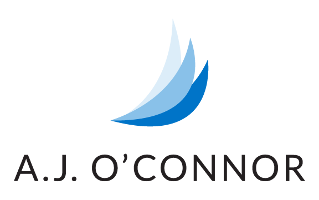
Adapting to Thrive: 5 Ways to Evolve as a Leader
Strong leaders understand that, like change, leadership practices are dynamic. With 2024 underway, the pace of change continues to accelerate, and leaders must evolve to meet the moment with new techniques and a growth mindset that is ready to tackle new and evolving challenges. To thrive in today’s globalized and technologically advanced world, leaders must embrace adaptability. Consider these 5 ways to evolve your leadership competency.
1. Move from Command and Control to Collaborative Leadership
Traditionally, leaders practiced a hierarchical, command-and-control approach. However, contemporary organizational structures demand a more collaborative and inclusive leadership style. According to a study published in the Harvard Business Review, teams with inclusive leaders are 17% more likely to report that they are high performing, showing that organizations that embrace a collaborative leadership model tend to outperform their peers in innovation, employee satisfaction and overall business outcomes.
2. Embrace Technological Advancements
The speed of technological advancements is transforming the way businesses operate. Leaders who fail to embrace and adapt to these changes risk their livelihood. According to a report by McKinsey, companies that fully integrate digital technologies into their business processes experience a 5% to 10% increase in productivity. This proves successful leaders must leverage technology for efficiency gains, fostering innovation and staying ahead of the competition.
3. Develop Stronger Emotional Intelligence
The evolution of leadership has shifted the focus from pure technical expertise to a more holistic view. Leaders must use their emotional intelligence to reflect inward and when collaborating with their team. Emotionally elevated environments are more likely to create a positive work culture and enhance team performance. By tapping into emotional intelligence when conducting your team, you all will become more cohesive, adaptable and resilient in the face of challenges.
4. Refine Remote Leadership Skills
Forbes states that 26% of employees work remotely and 36.2 million workers will join that percent by 2025. By adopting remote and hybrid work, we are prompting leaders to rethink their management styles. Remote leadership requires unique skills, including effective communication, trust-building and results-oriented management. Organizations that effectively navigate the challenges of remote leadership experience increased employee satisfaction, retention and productivity.
5. Advocate Continuous Learning and Development
Finally, adaptive leaders must recognize the importance of continuous learning and development. The fast-paced nature of today’s business environment demands leaders who can rapidly acquire new skills and knowledge. Companies that encourage continuous learning and provide educational resources to their employees have drastically higher retention rates. According to a report by LinkedIn, 94% of employees would stay at a company longer if it invested in their career development. Leaders must advocate for their organization to prioritize development programs, leading to higher employee engagement and talent retention.
Thriving in the Dynamic Workplace
The evolution of leadership is a direct response to evolving challenges. Leaders who embrace collaboration, leverage technology, cultivate emotional intelligence, adapt to work trends and prioritize continuous learning are better positioned to thrive. The importance of adaptability in leadership emphasizes that those who evolve are more likely to succeed. As we tackle future challenges, one thing is clear: adaptive leadership is not just a choice; it’s a necessity.
If you are ready to unlock your leadership potential and drive transformational change in your organization, AJO is here to help. Read more about our Coaching Solutions, then reach out today to see how we can support your goals.
Related Posts:
Unlocking Success: Overcoming the Barriers to Coaching for Performance
The Power of Transparent Communication: A Vital Leadership Competency

